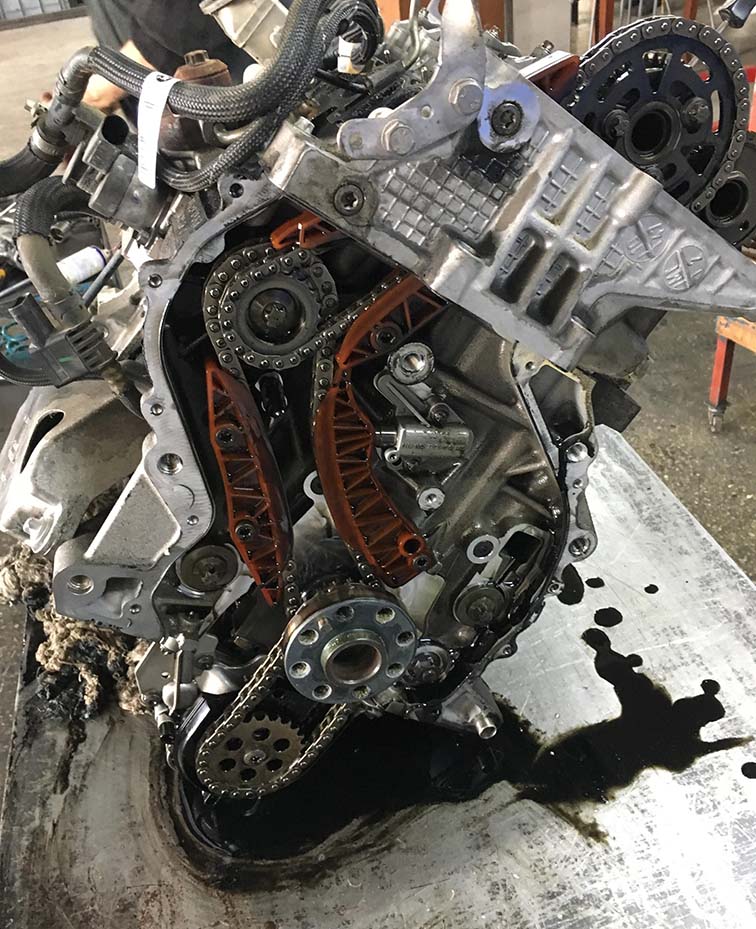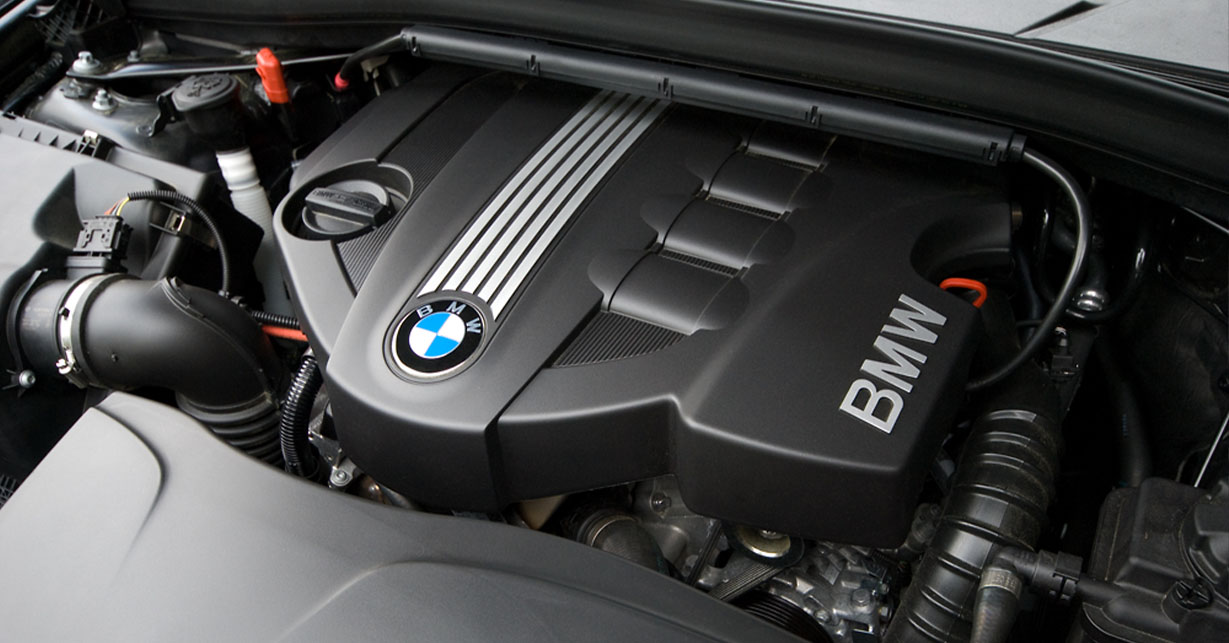The BMW N47 engine was first introduced in 2007 and is a 2.0L turbo-diesel inline-4 engine powering a wide range of BMW diesel models, from the 1 Series to the X5. Despite now being discontinued, most BMWs on the road in Europe are powered by the N47.
Early units suffered from timing chain issues that cause premature wear and early failure, a major issue that was corrected to some degree for later versions of the engine.
Is the N47 a reliable engine? What are some of its common problems? In this article, we will delve into the N47’s reliability, common issues to watch out for, and recommendations on how to keep your engine running healthy.
Is the N47 Reliable?
Despite its share of issues, the N47 is a relatively reliable engine. It is essential to keep an eye on the timing chain and replace it prematurely as driving with a timing chain that is close to the point of complete failure can lead to engine damage. Be aware that the N47 is not as reliable as its predecessor, the M47, or its successor, the B47.
8 Common Issues of the N47:
The issues you may experience will vary depending on the age and mileage of your engine as well as your driving habits. Here are the most common issues that can start affecting every N47 from around ~80,000 miles.
1. Early Timing Chain Failure:
The timing chain can catastrophically snap and lead to total engine failure. The issue is more common on engines produced between 2007 and 2011. Symptoms of a bad timing chain are excessive noise coming from the engine, lack of power, and ECU error codes. Most N47 engines will sometimes require a timing chain and timing chain guide replacement at some point.

Timing chain failure is the most severe issue of the N47. If you ignore the failure symptoms and continue driving your car for a prolonged period, there is a chance of catastrophic engine failure. The timing chain can snap or skip timing, leading in the worst case to a piston making contact with the valves.
Oil change intervals of 5K to 8K miles will extend the useful life of the timing chain. If you own a late-production N47, you may never end up experiencing timing chain issues. BMW originally recommended oil changes of 15K miles in this engine. That is too long of an interval for an engine with an already poorly designed-timing chain.
2. Crankshaft Pulley Failure:
The crankshaft pulley is what drives the accessory belt. If the crankshaft pulley fails not only you’ll not only lose alternator functionality but the accessory belt could be sucked into the engine.
Replace the crankshaft pulley at around 80K miles as this is a known common failure point on the N47. Replacing it preventively will save you from an extensive repair if it fails catastrophically.
3. DPF Replacement:
As with all modern diesel engines, the N47 may require a Diesel Particulate Filter replacement at some point during its lifespan. Regularly bringing the engine up to operating temperature and long highway trips will make the DPF last longer as it can work more efficiently and not be overwhelmed with soot.
4. EGR System Issues:
The EGR is another component of the emissions control system of the N47 and consists of the EGR valve and the EGR cooler. The EGR system can present issues if the engine is mainly driven in the city for short trips.
Soot could accumulate in the EGR cooler, then big chunks of this soot could detach, sending it through the intake manifold and causing further problems there. In a worst-case scenario, this could cause an engine fire.
Some users completely remove the EGR system as this can increase reliability as you’re no longer sending exhaust gases back to the intake. However, this may make the vehicle unable to be driven on public roads.
Frequent short trips will reduce its useful life immensely as it may get clogged or saturated. Note that a clogged DPF may end up damaging the turbocharger due to excessive exhaust pressure.
5. Oil Filter Housing Leak:
Keep an eye out for oil leaks from the oil filter housing gasket and oil cooler gasket. The gasket on this component gets hard and brittle after many heat cycles, and oil will start seeping from there and dripping down the engine.
If not addressed promptly, a leaky oil filter housing may end up also causing engine oil and coolant cross-contamination.
Unfortunately, this is a recurring issue with almost all BMW engines. Oil seepage may start appearing around 100K miles. Parts are inexpensive but removing the old gaskets and installing new ones is a labor-consuming process.
6. Intake Manifold Issues:
The intake manifold is a plastic piece that extends along the intake side of the engine. The seal on the intake manifold can fail, and this can lead to unmetered air entering the engine. This can make the engine run poorly or cause an oil leak around the manifold. Note that oil presence here is normal due to the PCV system sending oil vapors through it.
Swirl flaps are also integrated into the intake manifold and can fail, although it isn’t a common issue as it was on the M47 engine.
7. Glow Plugs & Glow Plug Control Unit:
Glow plugs will eventually need to be replaced. This can happen at around 100k miles. Note that if you wait too long to replace them they could seize to the head and need a lot of time to get them out.
The glow plug control unit is located in the engine bay and this unit tends to fail as well without throwing any error codes on the dashboard.
8. Brittle Crankcase Ventilation Hose:
The crankcase ventilation hose takes the crankcase vapors away from the engine and recirculates them through the intake. On the N47 the crankcase ventilation hose is made of plastic and has a plastic fitting. This part weakens over time with engine heat and becomes brittle.
This part is unlikely to fail during normal driving conditions but if you’re performing any kind of work in the engine that involves removing the crankcase ventilation hose, it could break due to how brittle it gets over time. We recommend having a new crankcase ventilation hose handy.
N47 Engine Overview
The BMW N47 engine comes in different variants, offering varying levels of performance. The most common N47 variant, the N47D20 produces 181 hp and 280 lb-ft of torque. The N47 engine shares similarities and even common issues with other engines in the same family such as the N57.
How to Keep the N47 Reliable:
To keep your BMW N47 engine reliable, follow these maintenance tips:
- Perform frequent oil changes: Changing your oil every 5K to 8K miles can help extend not only the life of the timing chain but also the internals of the engine block itself. BMW originally recommended oil change intervals of 15K miles for the N47, which contributed to the short life of the timing chain.
- Get the engine up to temperature often: Allowing the engine to reach operating temperature regularly can help prevent issues related to short trips and urban commuting. Ensuring that the engine reaches operating temperature frequently can help prevent carbon buildup, and maintain the effectiveness of the Diesel Particulate Filter and the EGR system.
Closing thoughts
The N47 engine is a reliable workhorse as long as you address its two most critical issues: replace the timing chain at around ~100K miles or when the engine becomes extremely noisy and replace the crankshaft pulley before that.
Although the list of common issues seems extensive, you’re unlikely to encounter all of them during your ownership. If you’re looking for a used N47-powered BMW, make sure the timing chain has been replaced as well as the crankshaft pulley.

